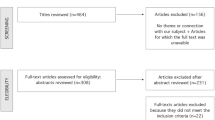Abstract
Given wuwei 無為 describes the life praxis of the sage and statecraft of the enlightened ruler while also denoting the comportment of the Dao 道—an alternating state of quiet dormancy and creative activity—are the standard translations of wuwei as “nonaction” or “effortless action” up to the task? They are not, it will be argued, in that they fail to convey the true profundity of wuwei. The objective of this essay is twofold: to show that wuwei is better understood as “abiding harmony” than nonaction, and to demonstrate this via a close reading of the Lüshi Chunqiu 呂氏春秋 (Master Lü’s Spring and Autumn Annals) which makes wuwei the epicenter of its doctrine of “the Dao of the ruler.” Indeed, the Lüshi Chunqiu’s unique application of wuwei lies not only in its borrowing of Daoist and Legalist norms, but in having the ruler meet the following prerequisites: be without knowledge, keep the senses and heart-mind pure, be reliant on others, follow Yin 陰 and Yang 陽, and study the course of heaven and earth to know the ways of humanity. There is, therefore, more to wuwei than meets the eye.
Similar content being viewed by others
References
Barrett, Nathaniel F. 2011. “Wuwei and Flow: Comparative Reflections on Spirituality, Transcendence, and Skill in the Zhuangzi.” Philosophy East and West 61.4: 679–706.
Blake, Susan. 2015. “Agency, Non-Action, and Desire in the Laozi.” Journal of Chinese Philosophy 42.3–4: 284–299.
Chai, David. 2019. Zhuangzi and the Becoming of Nothingness. Albany: State University of New York Press.
______. 2022. “Nature and Dao in Huanglao Boshu.” In Environmental Philosophy and East Asia: Nature, Time, Responsibility, edited by Hiroshi Abe, Matthias Fritsch, and Mario Wenning. London: Routledge.
Chen, Qiyou 陳奇猷, ed. 2002. New Annotated Edition of Master Lü’s Spring and Autumn Annals 呂氏春秋新校釋. Shanghai 上海: Shanghai Guji Chubanshe 上海古籍出版社.
Chen, Yao 陳瑤. 2018. “Master Lü’s Spring and Autumn Annals’ Absorption of Daoist Theories and its School Affiliation 呂氏春秋對道家學說的吸納及其具體學派歸屬.” Research in the Traditions of Chinese Culture 國學學刊 1: 50–57.
Defoort, Carine. 1997. The Pheasant Cap Master: A Rhetorical Reading. Albany: State University of New York Press.
Eifring, Halvor. 2019. “Spontaneous Thought and Early Chinese Ideas of ‘Non-Action’ and ‘Emotion.’” Asian Philosophy 29.3: 177–200.
Fox, Alan. 1996. “Reflex and Reflectivity: Wuwei in the Zhuangzi.” Asian Philosophy 6.1: 59–72.
Guo, Qingfan 郭慶藩. 1985. Collected Annotations to the Zhuangzi 莊子集釋. Beijing 北京: Zhonghua Shuju 中華書局.
Huang, Huaixin 黃懷信. 2014. Commentary to the Heguanzi 鶡冠子校注. Beijing 北京: Zhonghua Shuju 中華書局.
Knoblock, John, and Jeffrey Riegel, trans. 2000. The Annals of Lu Buwei: A Complete Translation and Study. Stanford: Stanford University Press.
Lai, Karyn. 2007. “Ziran and Wuwei in the Daodejing: An Ethical Assessment.” Dao: A Journal of Comparative Philosophy 6.4: 325–337.
Li, Shenglong 李生龍. 1992. Treatise on Wuwei 無為論. Changsha 長沙: Hu’nan Shifan Daxue Chubanshe 湖南師範大學出版社.
Liu, Xiaogan. 1991. “Wuwei (Non-action): From Laozi to Huainanzi.” Taoist Resources 3.1: 41–56.
______. 1999. “An Inquiry into the Core Value of Laozi’s Philosophy.” In Religious and Philosophical Aspects of the Laozi, edited by Mark Csikszentmihalyi and Philip J. Ivanhoe. Albany: State University of New York Press.
Lou, Yulie 樓宇烈. 2008. Commentary and Annotative Explanations to Laozi’s Daodejing 老子道德經注校釋. Beijing 北京: Zhonghua Shuju 中華書局.
Loy, David. 1985. “Wei-Wu-Wei: Nondual Action.” Philosophy East and West 35.1: 73–86.
Lynn, Richard J., trans. 2004. The Classic of the Way and Virtue: A New Translation of the Tao-te Ching of Laozi as Interpreted by Wang Bi. New York: Columbia University Press.
Michael, Thomas. 2015. In the Shadows of the Dao: Laozi, the Sage, and the Daodejing. Albany: State University of New York Press.
Rickett, Allyn W., trans. 1985. Guanzi: Political, Economic, and Philosophical Essays from Early China, vol. 1. Princeton: Princeton University Press.
Sellmann, James D. 2002. Timing and Rulership in Master Lu’s Spring and Autumn Annals. Albany: State University of New York Press.
Slingerland, Edward. 2003. Effortless Action: Wuwei as Conceptual Metaphor and Spiritual Ideal in Early China. Oxford: Oxford University Press.
Wang, Liqi 王利器. 2000. Elucidating the Meaning of the Wenzi 文子疏義. Beijing 北京: Zhonghua Shuju 中華書局.
Watson, Burton, trans. 2013. The Complete Works of Zhuangzi. New York: Columbia University Press.
Wells, Marnix. 2013. The Pheasant Cap Master and the End of History: Linking Religion to Philosophy in Early China. St. Petersburg: Three Pines Press.
Xiao, Zhensheng 蕭振聲. 2018. “The Uniqueness of the Miscellaneous School’s ‘Wuwei of the Ruler’ in Master Lü’s Spring and Autumn Annals 呂氏春秋論「君道無為」之雜家特色.” Journal of the Chinese Department, National Chung Hsing University 興大中文學報 43: 35–73.
Xu, Liang 許亮. 2020. “A Conceptual Analysis of ‘Harmony’ in Master Lü’s Spring and Autumn Annals 呂氏春秋中「和」的思想探析.” Research in the Traditions of Chinese Culture 國學學刊 1: 60–65.
Xu, Weiyu 許維遹, ed. 2010. Collected Annotations to Master Lü’s Spring and Autumn Annals 呂氏春秋集釋. Beijing 北京: Zhonghua Shuju 中華書局.
Zhu, Rui. 2002. “Wu-Wei: Laozi, Zhuangzi and the Aesthetic Judgment.” Asian Philosophy 12.1: 53–63.
Author information
Authors and Affiliations
Corresponding author
Ethics declarations
The author declares that there is no conflict of interest.
Additional information
Publisher’s Note
Springer Nature remains neutral with regard to jurisdictional claims in published maps and institutional affiliations.
Rights and permissions
Springer Nature or its licensor (e.g. a society or other partner) holds exclusive rights to this article under a publishing agreement with the author(s) or other rightsholder(s); author self-archiving of the accepted manuscript version of this article is solely governed by the terms of such publishing agreement and applicable law.
About this article
Cite this article
Chai, D. Wuwei in the Lüshi Chunqiu. Dao 22, 437–455 (2023). https://doi.org/10.1007/s11712-023-09894-8
Accepted:
Published:
Issue Date:
DOI: https://doi.org/10.1007/s11712-023-09894-8




